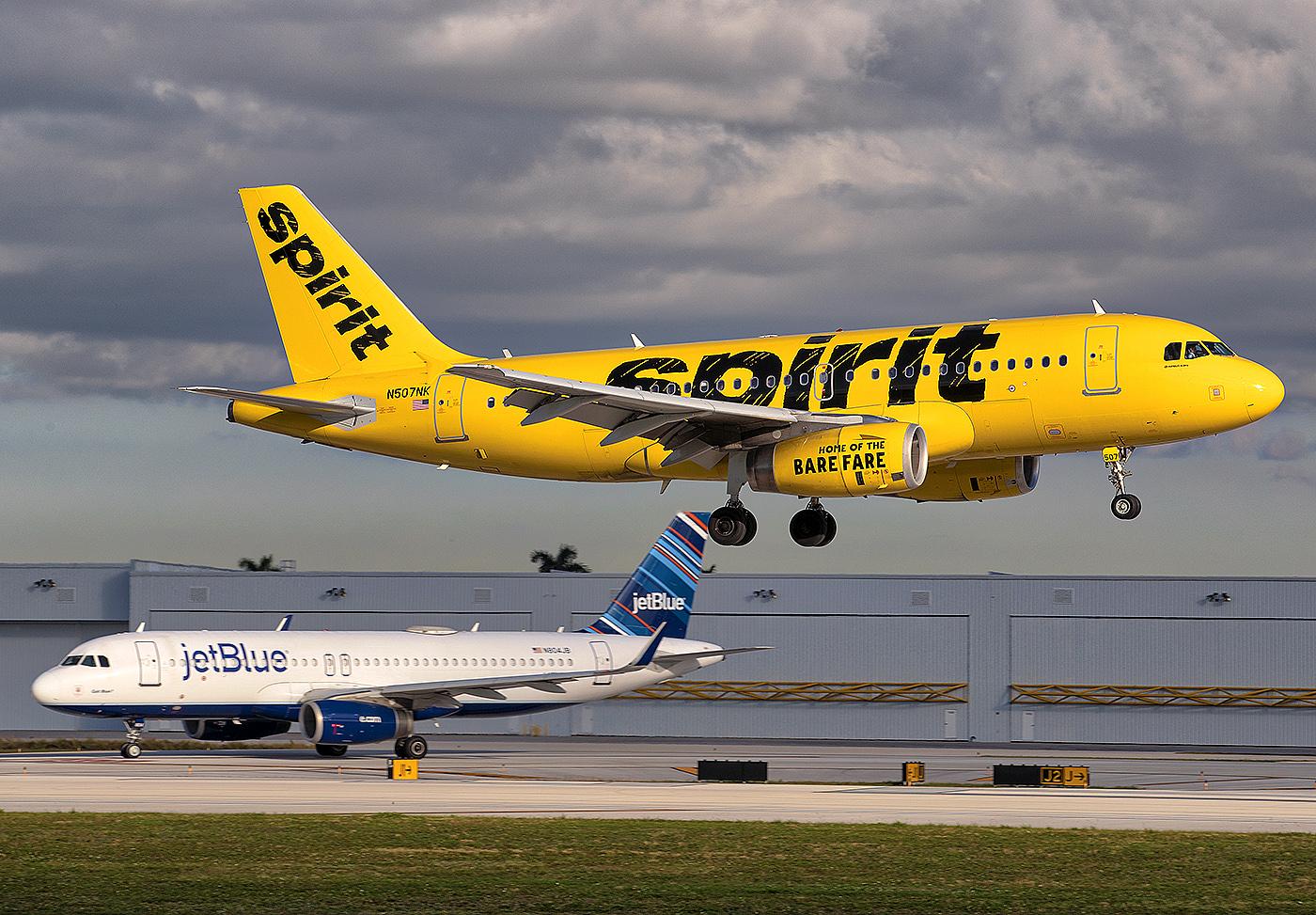
Over the next two years, Spirit Airlines plans a “generational” shift in its fleet makeup, completely retiring the Airbus A319ceo and improving cost and fuel efficiency.
Speaking at the JP Morgan Industrials conference March 14, CEO Ted Christie said the planned retirement represented about 30 aircraft.
“Our delivery stream over this two-year period will largely consist of the A321neo, which will have 235 seats on it—even more than our A321ceo,” he said. “We’re going to have a tremendous opportunity to increase unit cost efficiency across the fleet, and unit fuel efficiency across the fleet. In fact, fuel efficiency between the A319ceo and the A321neo is going to be 40% on a unit basis.”
Under JetBlue’s proposed acquisition of Spirit, the South Florida-based ULCC’s fleet would see reconfigurations cutting down on the number of seats, a process that could take several years if and when the deal is approved. Spirit currently operates all variants of the A320 family. While JetBlue’s high-density A321neos have 200 seats, Spirit’s have 228, according to Aviation Week Network’s Fleet Discovery. JetBlue’s longest-range A321neos have just 138 seats, including 24 in first-class.
In the meantime, Christie was careful to note the carrier is continuing to behave as a standalone business.
“We’re doing everything that we would do otherwise,” Christie said. “We believe that what we’re doing, by the way, is in the best interests of any enterprise going forward. So, the decisions we’re making, I don’t think, are marginal that way—be it the way we finance the airplanes, be it our configuration, all that stuff. We still feel like those are the right decisions to make.”
Spirit is also continuing to experience issues with the Pratt & Whitney Geared Turbofans (GTF) engines that power its Neo fleet. Christie told investors the issues have grounded more planes in March than the prior month, but said Pratt is “responding well” to making sure progress would be made on the issue in 2023. As previously reported, GTF reliability problems have been ongoing for Spirit and peers including Hawaiian Airlines, on constrained maintenance, repair and overhaul (MRO) capacity.
“We are one of the largest operators of that aircraft variant in the world,” Christie said. “When it works it’s a fantastic powerplant, it does everything we expect that airplane to do, and we’re very excited about it being the core part of our fleet going forward. However, we are experiencing some issues right now. We have six airplanes on the ground right now, and that’s a little bit higher than it was when we were back in February.”
As a result, the carrier said it had to take “a little bit of flying out of March,” amid high demand. In a statement to Aviation Week, a Pratt spokesperson said the company has developed strategies to help navigate current pressures, some of which they expect to improve by year’s end.
“Engine availability is under pressure industry-wide, particularly due to the availability of hardware to upgrade and overhaul engines,” the spokesperson said. “We’ve developed a number of mitigation strategies to counteract these issues, which include providing more direct logistical support to our supply base and developing hardware and software upgrades to extend the length of time engines can operate between shop visits, and we are seeing longer on-wing time with the today’s production standard. We expect supply chain pressures to ease later this year, which will support increased engine output and reduce impacts to operators. Ultimately, the GTF engine is the most fuel efficient, sustainable engine for narrow-body aircraft and we continue to see strong demand.”
On the ULCC’s proposed merger with JetBlue, Christie said the U.S. Justice Department’s suit to block the deal kicked off a formal process “that we all expected,” projecting a late 2023 resolution.
“We do have high confidence combined that we have a very supportable argument here,” he said. “The combination of the seventh and sixth largest airlines in the United States to become the fifth largest airline feels, to us, to be a very pro-competitive move.”
